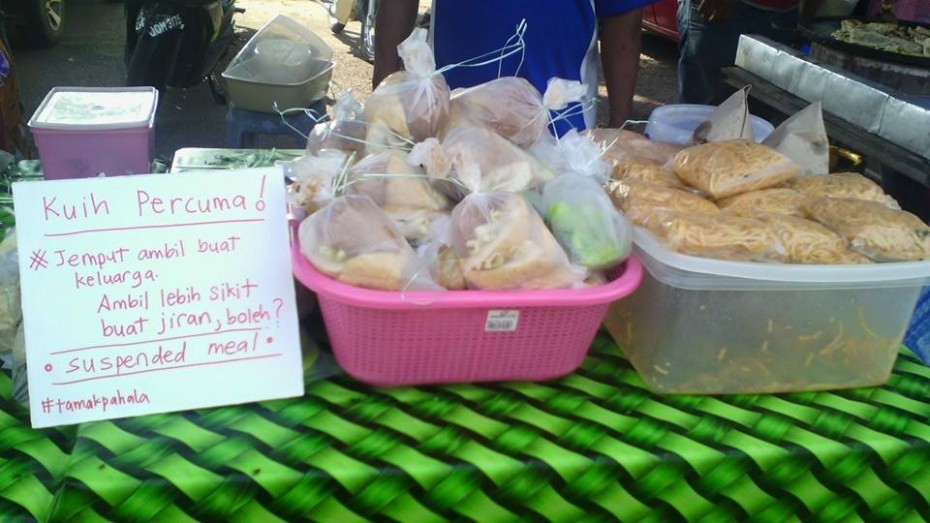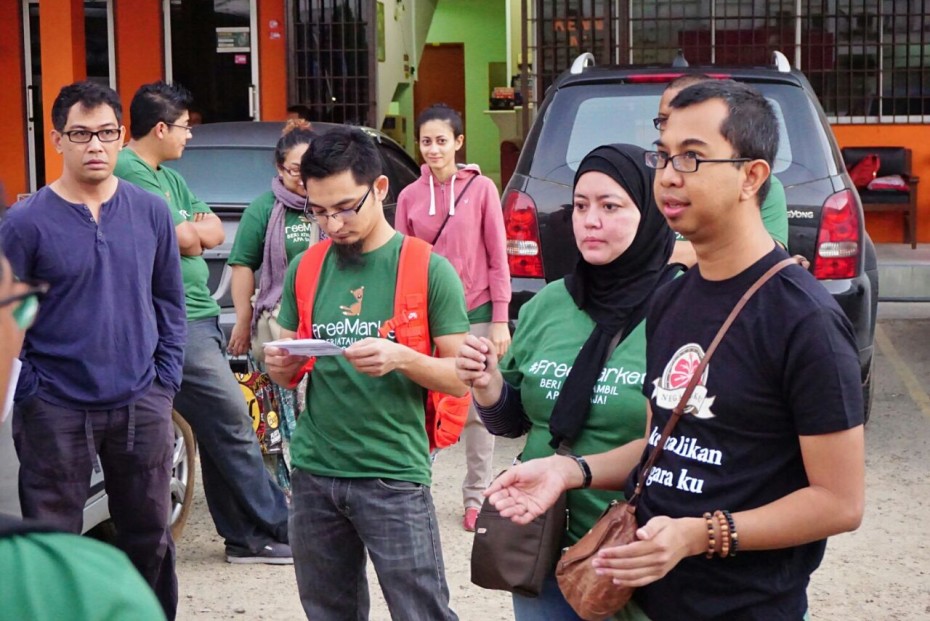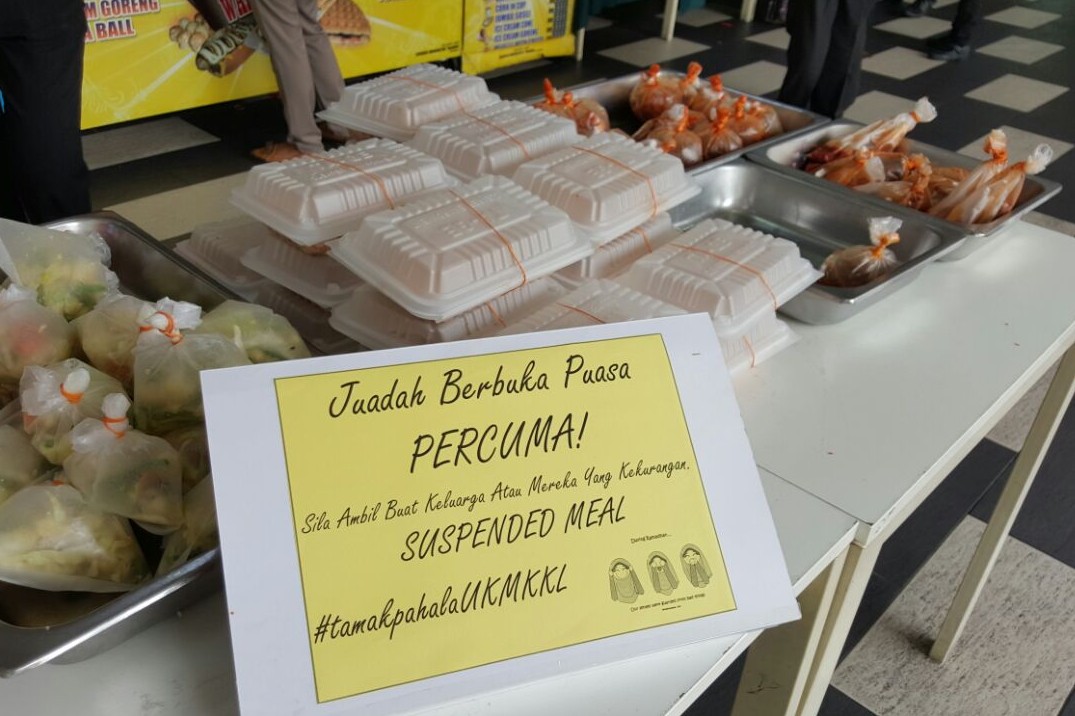SYED Azmi Alhabshi made waves when he posted a picture of a bag of kuih at a Ramadan bazaar in Johor Baru, with a sign saying “Free kuih! Take some for your family, as well as for your neighbours”. That post got over 12,000 likes and almost 3,500 shares on Facebook.
That was how he got the ball rolling on a local version of the global “suspended meals” movement, which he simply called Suspended Meal.
But to the modest 30-something (he doesn’t disclose his age to the media), this isn’t about fame or Facebook likes. This is about helping people.
“When it comes to trying to make the world a better place, you don’t think – you just do,” he said.
How the movement works is simple: You pay for food at a restaurant or cafe and the establishment keeps it on hand, to be collected by hungry people who are unable to purchase a meal.

During the first week of Ramadan, Syed Azmi posted this picture, of his contribution to the Suspended Meal movement. According to him, the concept of suspended meals has since spread to many bazaars nationwide. Photo from facebook.com/SuspendedMealMY
After his post went viral, the concept spread like wildfire, and Syed Azmi was proud to announce it was being implemented at various locations nationwide, from Kota Kinabalu to Rantau Panjang, and even universities like Universiti Kebangsaan Malaysia.
While many might be wary of potential freeloaders abusing the system, Syed Azmi points out that “people in need” are not necessarily poor.
“It could be someone like me or you,” said the pharmacist. “Someone who forgot his wallet and needs a meal. Or someone could take it for somebody else they know who needs the food.”
“Take what you need, that’s how it’s supposed to work.”
The more cynical might shy away from the idea of such blind trust, but thankfully, there’s a new generation of young Malaysians who believe a bit of faith and honesty can make a huge difference.
Related story: Other local suspended meal movements
Starting at home
Syed Azmi wasn’t always a do-gooder. It all started about three years ago, when he moved from his parents’ home in Taman Tun Dr Ismail, Kuala Lumpur, to work in Johor Baru.
“I started worrying about them,” he recalled. “I was moving far away. Who was going to take care of my parents if anything happened?”
So, he decided to get to know his neighbours a bit better. They were, after all, the closest ones around, and the most likely to come to his parents’ aid. Along the way, he discovered the importance of a strong link to the community, and after that came the desire to help those around him.

From left: Ahmad Amran (in green T-shirt), Hayati Ismail and Syed Azmi met through their TTDI Residents Association and quickly found they had a similar passion for charity.
“Some people come up to me and say they have an idea for charity – they want to help the Rohingya,” he said. “But when I ask them if they are familiar with their own neighbours, they say ‘No’. So I always ask them, ‘Why don’t you start helping around your own community?’ and they have no response.”
He stressed that there’s not much point having grand ideas when you can’t even entertain the thought of lending a hand in your community. “Helping your own community is important, and it can lead to avenues where you can do greater things,” he said.
He has a point.
In fact, it was his involvement with the TTDI Residents Association that led to him meeting and subsequently setting up Rakyat4Rakyat with two friends, Ahmad Amran and Hayati Ismail. Rakyat4Rakyat is a “by the people, for the people” initiative that helps those with ideas find and collaborate with like-minded people.
It doesn’t take much
According to Syed Azmi, what makes people hesitant to contribute to society is the misconception that it takes a lot of money to make anything happen.
“That’s not true at all! Take a look at Suspended Meal,” he said. “You just give as much as you’re able. If you can buy RM200 worth of food, go ahead. But you can still help people and buy food with RM25.” Charity, to Syed Azmi, is not about money, but rather about time, effort and knowledge.
“My friends and I are proof that anybody can do it, with enough effort. We’re not rich,” he said.
“And I know that there are people out there with great ideas. I read R.AGE and I’ve noticed the young generation have good ideas. I’ve even taken inspiration for my projects from some of them!”
To him, Suspended Meal has been a resounding success because people are starting to take food for others in need. That means not only are people taking the time to deliver food to others, they are also actually thinking of others and their needs.
“It’s more than free food,” he said. “It’s about people being kind and genuine.”






